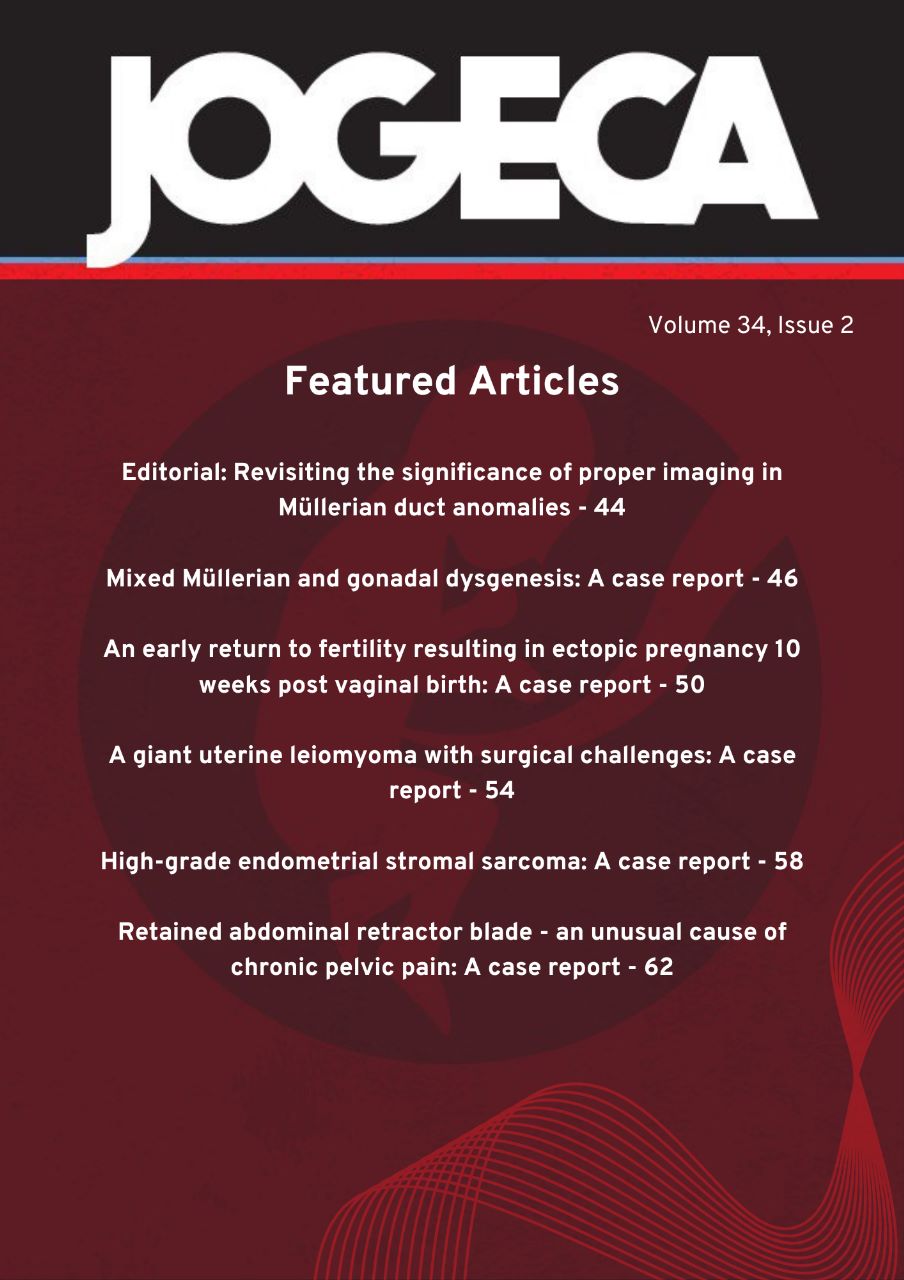PREDICTORS OF FISTULA HEALING; A STRUCTURED LITERATURE REVIEW.
DOI:
https://doi.org/10.59692/jogeca.v32i2.237Keywords:
Vesico Vaginal Fistula, Predictors of Surgical OutcomesAbstract
Introduction: Obstetric fistula is defined as an abnormal communication between two epithelial surfaces. It is a preventable maternal morbidity that results from prolonged and obstructed labor. Often, the condition is characterized by continuous urine or stool leakage. In East Africa, the condition is common. In recent years, health workers have scaled up access to fistula repairs in an attempt to restore the dignity of affected woman. However, little is known about the number of women who gain full continence after surgery. In addition, factors that affect or promote fistula healing are scanty. The aim of this review was to describe predictors of fistula healing in these settings.
Methodology: Methods Structured review system to literature compilation was used. Explicit methodology was utilized to identify, select, and critically evaluate results of the studies to be included in the literature review. Authors developed a pre-defined eligibility criterion and a specific research question which guided the search process. Papers which focused on predictors of fistula healing were reviewed. The following Keywords were used in the search: Vesicovaginal Fistula (VVF), Vaginal Fistula (VF), urogenital fistula (UGF), Obstetric fistula (OF), Female Genital fistula (FGF) and Treatment outcomes. Hawkers tool was used in scoring selected papers.
Results: A total of 23 papers were reviewed. Few papers assessed surgical outcomes in fistula surgery especially in East Africa. Predictors of poor surgical outcomes were reported, these include: Scarring tissue, repeat repairs and large fistulas.
Conclusion: Factors that predict outcomes in fistula surgery are far more than those reported. There is limited evidence of mixed methods study designs in this field of surgery. As such, further inquiry is required to explore a wider range of factors and develop holistic approaches to fistula management.
Downloads
Published
How to Cite
Issue
Section
Categories
License
Copyright (c) 2020 The Authors.

This work is licensed under a Creative Commons Attribution 4.0 International License.




